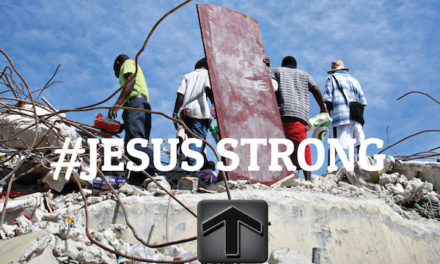As we continue to consider practical ways to equip young people to stand firm in their faith, we find many Christian teens today are living a life with little to no spiritual reflection or depth. Many are deeply confused about the nature and character of the Triune God, other essential Christian truths, and even the concept of truth itself. Because most young peoples’ worldviews are shaped by the world and our culture rather than by the Bible, their beliefs diverge widely from Biblical standards. As a result of this, many teens are leaving the very faith they once identified with, and of those remaining in the faith, few are living as bold witnesses for Christ. Dedicated teenagers who embrace an authentic Christian worldview, however, are not only less likely to abandon the faith, but are more likely to practice it in their daily lives. This is why apologetics training is such a critical component in the discipling of our youth. If we can help them to internalize the truth and beauty of Christianity, they will be far more likely to live out its goodness. History has shown that people act on what they believe—not what they say they believe, or want to believe, but what they really believe. People who believe that God truly has spoken through the Bible are far more likely to follow its guidance and are much bolder in their witness for the truth of Christianity than are those who are not so convinced. We must lovingly train young people to be able to defend their faith with confidence and authority.
Deeply rooted in the hearts of all young people is the awareness that truth is a necessary bedrock for life. We should never dismiss the fact that youth believe in truth, that they want truth, and that they organize their lives around what they believe is ultimately true. They just need help to clear away the misconceptions about truth that they unwittingly have adopted from our culture. We should help our students understand creation, the historical Jesus, the problem of evil, and other important apologetic issues. In my own work with teens, I have found four helpful strategies in this endeavor.
First, help teens develop the skills of critical thinking. In our fast‐paced, image‐oriented culture, youth are more persuaded by images and stories than reasoned proofs. Few have cultivated the ability to think critically, yet critical thinking is the very skill they need to distinguish truth from error. All young people should be able to identify self‐refuting statements such as, “There is no truth”, “Christianity is false because there are so many hypocrites,” and appeals to emotion such as, “We must legalize abortion because so many unwanted babies get abused in the world.” Basic logic skills are indispensable for training students in apologetics.
Second, use examples from the media to teach biblical truths. Studies indicate that students spend more time interacting with the media outside the classroom (e.g., the Internet, television, video games) than they do interacting with subject material in the classroom, which makes media examples powerful tools. I try to incorporate a media example nearly every time I teach youth.
Third, ask pointed questions. The best way to help teenagers learn how to defend their faith is often through probing questions and interaction rather than “preaching” or lectures. This is how Jesus Himself taught. When Jesus was challenged or asked a question, He often responded with a question. I often begin a lesson with a thought‐provoking question, which also helps me to find out what my students truly believe about a subject. For example, I recently asked: “When fellowship with Jesus becomes a Sunday only experience, how does that affect the rest of your week?”
Fourth, help teenagers put their knowledge into practice. Without application, apologetics is often simply a head game that makes little difference in their lives, so we must provide supervised opportunities for them to apply in real‐world situations what they have learned.
When young people find answers to their questions about the Christian faith, they often become bolder in their witness for Christ. Apologetics training creates confidence and courage. If we want our young people to be bold witnesses for Christ, we have to equip them with the intellectual tools to defend their beliefs.






